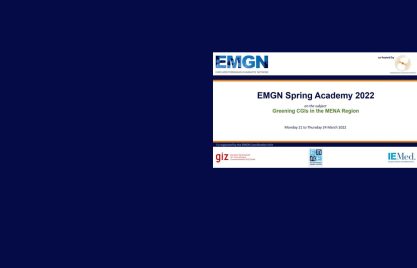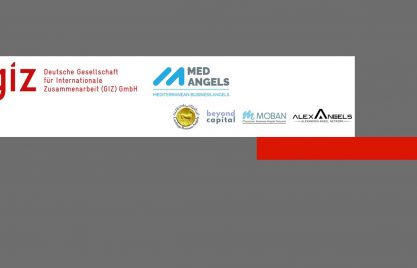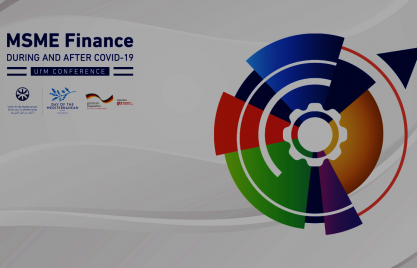In 2008, blockchain technology was intended to serve the first cryptocurrency, yet it turned out to have invaluable potential for applications in many different fields such as financial services, property registries, medical records, and governmental services. Despite the growing global interest in using blockchain technology, why is its spread still limited in the financial sector?
When it comes to the financial sector, there are some general and some industry-specific challenges that hinder the widespread use of the distributed-ledger technology (DLT) that is at the core of blockchain technology. A significant challenge is the nature of the financial industry itself, which is heavily governed by many legal, regulatory, and institutional frameworks and requirements, that emerged following the global financial crisis a decade ago.
According to the World Bank, mobile payments and blockchain-based solutions alone could generate banking revenues of about USD 380 billion by 2020. In recent years, Arab governments have paid growing attention to blockchain and its use cases as digital transformation is seen as a driver for economic diversification and is becoming on top of the strategic agendas of several countries in the region. It is expected that the blockchain market in MENA will more than double by 2021.
Therefore, the Arab Monetary Authority (AMF) is monitoring the evolution of financial technology and its implications on the breadth and stability of the financial system in the Arab region. To that end, AMF is providing the Technical Secretariat for the Council of Governors of the Arab Central Banks and Monetary Authorities, and has put the topic of blockchain technology on the agenda of its numerous task forces, as per the following examples:
- The Arab Committee for Banking Supervision and the Financial Stability Task Force are carefully examining the technology’s implications on the stability of the financial system as well as the role of Central Banks in this context.
- The Financial Inclusion Task Force is interested in the potential of fintech to enhance financial inclusion in Arab countries.
- The Arab Committee for Payment and Settlement Systems analyses the implications of fintech on the development of electronic payment tools and potential cost reductions for remittances across the region.
- The Arab Credit Information Committee reviews several credit information services using modern technologies such as big data analytics, including the role of blockchain in the exchange of credit information.
Most recently, the AMF established a regional Fintech Working Group to promote financial technology while ensuring financial stability. The group comprises regulatory bodies, financial and technology providers, international financial institutions, and associations from the region and beyond. It will move forward on the formulation of guidelines and policies that would help to strengthen the fintech regulatory frameworks and ecosystems in the Arab region.
Under the Financial Inclusion for the Arab Region (FIARI) Initiative, AMF and GIZ, AFI and the World Bank together with the United Arab Emirates Central Bank held the first Arab #FinTex Symposium in December 2018. The Symposium attracted more than 250 policymakers and regulators, scholars, and professionals active in finance and technology sectors including blockchain.
The discussions around global policy developments in DLT and blockchain, for example, shed the light on Tunisia, which was the first country at the global level to have a state-run electronic payment system based on blockchain technology. In 2015, Tunisia decided to boost its eDinar digital currency using blockchain, building on the previous achievements of the Tunisian Post, a key financial inclusion champion in the country. Tunisia’s Government has ever since been cooperating with blockchain companies to deploy its first application for a full ecosystem of digital payments to provide financial services to unserved segments.
In the UAE, the Abu Dhabi Global Market (ADGM) has adopted a fintech strategy to encourage meaningful blockchain applications. ADGM was the first in the region to establish a dedicated regulatory framework for fintech and a digital sandbox (regulatory laboratory); providing a marketplace for open collaboration between financial institutions, fintech firms, and regulators to facilitate testing and adoption of innovative digital financial products and services that can benefit the industry in the region. In late 2018, ADGM announced the conclusion of the first phase of its electronic Know-Your-Customer (eKYC) scheme using DLT in close collaboration with the country’s largest financial institutions with the aims of improving cost efficiency and financial inclusion.
On the digital currencies front, the Saudi Arabian Monetary Authority (SAMA) and UAE Central Bank (UAECB) have recently launched a common digital currency project called “Aber” that will be used for financial settlements between the two countries using DLT. This project will also allow banks to deal with each other in conducting financial remittances directly. This is probably the first time in which two monetary authorities have cooperated in such a domain.
The use of blockchain technology in Arab countries is not limited to financial services. The Dubai Blockchain Strategy in the UAE aims at facilitating blockchain development. By 2020, Dubai will be the first blockchain powered government as 100 percent of the government services in Dubai will be provided through blockchain which is expected to mobilize savings of around USD 1.5 billion annually.
Technology is the future and we all need to harness its potential for the benefit of societies and economies in the Arab region.
By Dr. Heba Abdel Monem, Chief, Studies Division, Arab Monetary Fund
Access this post in Arabic: استخدامات تقنية البلوك تشين في المنطقة العربية
Edited by Miranda Beshara and Atilla Kaiser-Yücel. This blog post is part of the “Fintech and Blockchain for Financial Inclusion in the Arab World Blog Series,” published on the Arabic FinDev Gateway and GIZ’s fimena.org. It explores some of the key issues that were discussed at the 2018 Arab #FinTex Symposium held in Abu Dhabi, UAE, from December 12-13, 2018 under the Financial Inclusion for the Arab Region Initiative (FIARI) by AMF, GIZ on behalf of BMZ, AFI, and World Bank, co-hosted by the UAE Central Bank.



